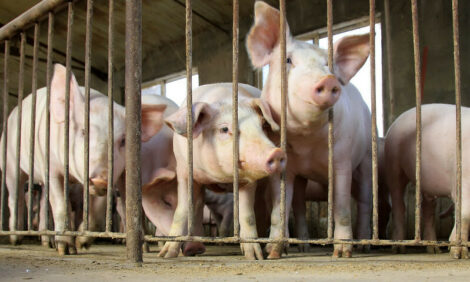



Concerns Rising over Spread of African Swine Fever in EU
ANALYSIS - Concern is rising over the spread of African swine fever in Europe as new cases this month have been found in wild boar in both Poland and Latvia.At the same time the disease is continuing to spread in Russia with new cases reported by the Russian Veterinary Authority, Rosselkhoznador, in domestic pigs in Voronezh, Smolensk and Pskov and in wild boar in Pskov and Novgorod.
At the 60th meeting of the SPS committee of the World Trade Organisation held in Geneva earlier this month, the Russian representatives kept up the pressure on the EU, saying that Europe had repeatedly failed to heed the warnings over the spread of the disease from Russia and Belarus.
Rosselkhoznador told the SPS committee that the disease had followed the expected route into central and Eastern Europe through Belarus and Ukraine.
The warnings had been issued since the discovery of the disease in Georgia in 2007.
Rosselkhoznador has also warned that the troubles in Ukraine, particularly in the east of the country, surveillance for the disease could well be reduced and this could offer a fresh threat of the disease entering Eastern Europe.
The veterinary authority said that monitoring exercises need to be carried out on the borders with Ukraine and in neighbouring countries to ensure that the safety measures are in place to ensure that the disease does not spread.
The authority said that it was particularly concerning because of the new outbreaks in Poland and the spread of the disease to Latvia.
The outbreaks in continental Europe are worrying because they have now appeared not only in wild boar but also in domestic pigs.
Rosselkhoznador said that the spread of the disease is generally through wild boar, but with the spread through domestic pigs suggests “uncontrolled movement of contaminated meat” in the Baltic countries.
However, the European Commission told the SPS committee that the EU had complete and effective control measures in place and accused Russia for the spread of the disease in Russia and Belarus.
The Russian authority said that Russia had struggled with the disease for seven years, but had held it back from entering Europe to a long period.
The Russians added that despite repeated warnings in talks and at international events for the European Commission to consolidate their efforts to eradicate the disease, the commission had taken no action.
Meanwhile, Rosselkhoznador has now discovered the disease in meat samples in a slaughterhouse and processing plant in Velikoluksky
The genetic traces of the disease were found in samples of a variety of sausage products from the meat plant.






